Coronavirus Australia live news: Shot in the arm coming for jab rollout
Health Minister Greg Hunt says Australia will have access to an additional 1.6 million doses within three weeks, adding the nation is in a ‘extraordinarily fortunate position’.
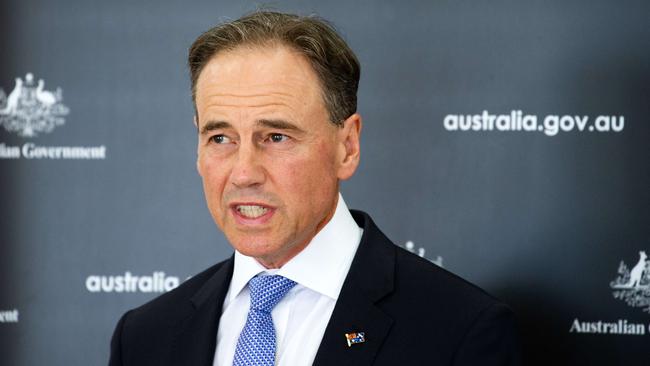
- Shot in the arm coming for jab rollout
- ‘Simple fact’: 3.1m doses not here
- All US adults to be eligible for jab
- Vaccine trial on children paused
Welcome to The Australian’s rolling coverage of the ongoing coronavirus pandemic.
Health Minister Greg Hunt says Australia will have access to an additional 1.6 million doses within three weeks, adding the nation is in a ‘extraordinarily fortunate position’.
Scott Morrison has denied criticising the European Union over vaccine supply, declaring it’s a “simple fact” that 3.1 million of the 3.8 million vaccine doses Australia had ordered did not arrive when planned.
A scientific trial testing the Oxford AstraZeneca coronavirus vaccine on children has been suddenly paused while regulators conduct further investigations. Australians are rushing to fly into New Zealand for a holiday after the nations opened their borders for a two-way travel bubble.
Jacquelin Magnay 11:45pm: EU would have rejected vaccine requests
The European Commission says its rules are very clear about exporting to countries outside of the European Union, suggesting that even if AstraZeneca or the Australian government had made any requests for vaccine exports, they would have been rejected.
In a press briefing from Brussels on Wednesday, the Commission said it had been in talks with the Australian government, but that it would not detail the substance of discussions.
“We do not comment on contacts which exist with the EC and various actors when it comes to distribution of vaccines,’’ the Commission’s chief spokesperson Eric Mamer said.
Mr Mamer said withdrawals of requests or any communications with Australian authorities under the export mechanism are made by the pharmaceutical companies.
READ MORE:EU would have rejected Covid-19 vaccine requests
AFP 11pm: Vaccine investments pay for themselves: IMF
Public spending aimed at accelerating COVID-19 vaccination campaigns and ending the pandemic will generate returns and boost economic growth, the IMF says.
“Vaccination will, thus, more than pay for itself, providing excellent value for public money invested in ramping up global vaccine production and distribution,” the IMF said on Wednesday in its Fiscal Monitor report.
Fund economists calculated that controlling the pandemic sooner than expected — meaning most countries have broad and affordable access to vaccines by early 2022 — means “stronger economic growth” and more than $US1 trillion ($1.3 trillion) in cumulative tax revenues for advanced economies by 2025.
In the latest forecasts released at the start of the spring meetings held alongside the World Bank, the IMF was more optimistic about global growth this year, projecting a 6 per cent expansion after the 3.3 per cent contraction in 2020 — the worst peacetime downturn in a century.
The IMF pointed to the rapid responses by governments to spend freely — a response totalling $US16 trillion — to help contain the economic damage from the pandemic, but warned that ending the health crisis remains crucial to a solid recovery and vaccine distribution to poor countries was “deeply iniquitous.”
The Fiscal Monitor stresses the need for continued government spending, but notes that rising debt levels make it critical for policymakers to target their aid.
It also repeats the suggestion that countries use taxes on the rich to finance their programs.
“To help meet pandemic-related financing needs, policymakers could consider a temporary Covid-19 recovery contribution, levied on high incomes or wealth,” the report said.
The IMF also noted that “domestic and international tax reforms are necessary” to generate “the resources needed to improve access to basic services” as well as bolster safety nets and development goals.
IMF chief economist Gita Gopinath on Tuesday already noted the fund’s longstanding support for the idea of a universal tax that would reduce the ability of companies to shift their profits to tax havens.
“We are very much in favor of a global minimum corporate tax,” she said.
READ MORE:Australia leads world with $590bn Covid debt spike
Jess Malcolm, AFP10.15pm: Merkel backs ‘short national lockdown’
Chancellor Angela Merkel is in favour of tightening virus restrictions in Germany for a short period to stem rising case numbers, her spokeswoman says.
Mrs Merkel backs calls for a “short national lockdown”, Ulrike Demmer said on Wednesday, noting that the country’s health system was under growing pressure.
Germany has been in some form of shutdown since November, but has struggled to bring case numbers under control in recent weeks with a surge in the British variant of the virus.
At their last meeting in March, Mrs Merkel and the leaders of Germany’s 16 states agreed national rules including strict shutdowns and possible curfews in areas with more than 100 new infections per 100,000 people over seven days.
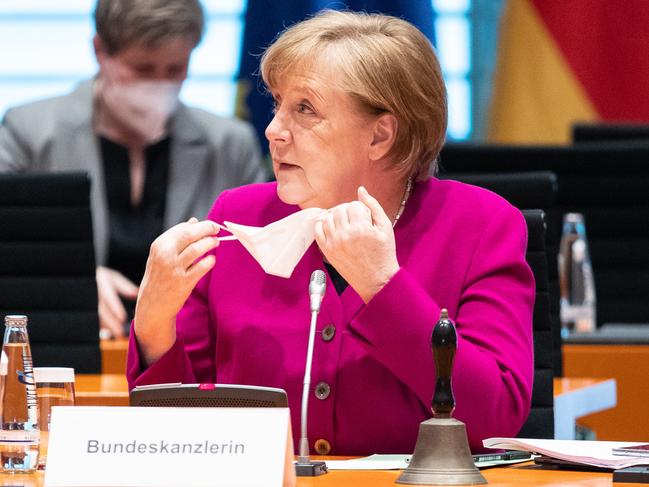
But under Germany’s federal system, each state can ultimately decide its own rules. Some have failed to impose more restrictions in the face of more cases and even gone ahead with reopening measures.
The patchwork of rules “is not contributing to security and acceptance at the moment”, Ms Demmer said.
“The health system is under intense pressure,” she added, noting a 5 per cent increase in occupied intensive-care beds in just 24 hours.
Germany recorded almost 10,000 new infections nationwide and a seven-day incidence rate of 101.1 on Wednesday, though the Robert Koch Institute health agency warned the real number could be higher because of a lag in reporting after the four-day Easter weekend.
Voices calling for a short, sharp shutdown in recent days have included Armin Laschet, the head of Merkel’s CDU party, who called for a “bridge lockdown” to tide the country over until more people have been vaccinated.
Merkel and the regional leaders are next due to meet on Monday.
READ MORE: Vaccine ramp-up as GPs slam rollout
Olivia Caisley 9.30pm:Young women chary of getting jab
Young women are the most reluctant group to receive a COVID-19 vaccine but their attitudes could change depending on their level of trust towards the government, an Australian National University study says.
A survey of more than 3000 Australians shows that more than half of young men aged 18 to 24 are keen to be vaccinated as soon as possible (62 per cent), compared with 43 per cent of women in the same age group. Those over 65 were the most willing to be vaccinated (80 per cent), with most Australians (64 per cent) indicating they would get the jab as soon as possible.
ANU professor at the Research School of Psychology, Kate Reynolds, said trust in the government was a crucial factor in determining people’s willingness to get a COVID-19 vaccine.
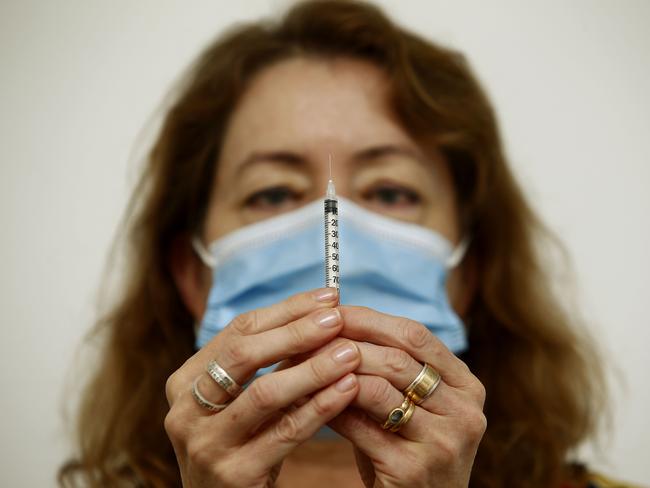
“We found people — regardless of ethnicity, age and gender — who have greater confidence in state and federal governments are more willing to be vaccinated,” she said. “Social cohesion also mattered. We found key drivers of getting vaccinated for COVID-19 included when people had a sense of belonging in their neighbourhood, and a belief people are being treated fairly.“
Experts said the research could assist the government in getting reluctant groups and the undecided over the line. “It shows us trust in the government and social cohesion are important. If young women have been put off the government because of the handling of sexual harassment and political culture, they could well turn off engaging about vaccination,” Professor Reynolds said.
About 30 per cent of young women aged 18-24 reported confidence in the federal government compared to the rest of the population at 47 per cent.
Jess Malcolm8.45pm:We get vaccine information from ABC: state minister
The NSW Health Minister says he learns more about the vaccine rollout from programs like ABC’s 7.30 than from the Morrison government, claiming the NSW government is still in the dark about what supplies it should expect.
The vaccine rollout stoush between the states and the federal government has been reignited, with Brad Hazzard saying he finds it “mysterious” why CSL is unable to give a timetable for its vaccine production.
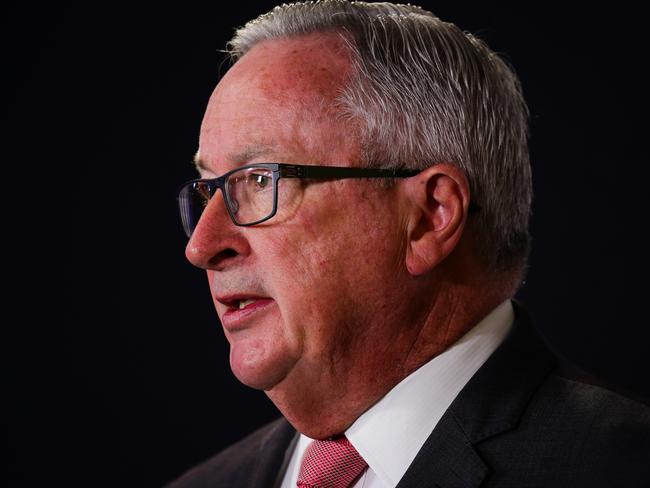
“I think it’s fair to say that the communications probably do need to be improved a little bit
with each of the states and territories,” Mr Hazzard told the ABC on Wednesday night.
“We do get a lot of our information from (the ABC). I think it reflects the fact that the federal government is obviously struggling with trying to do the right thing by the community in New South Wales and, indeed, Australia.
“But we are just having a very difficult time knowing precisely how much vaccine will be available, what quantity and why it has to go through all the approval processes and there was clearly an expectation from some of the earlier statements they would have a lot more.”
The NSW government announced today it would set up a mass vaccination centre as part of its vaccine rollout, but Mr Hazzard said his government has been left in the dark on what vaccines the state could expect to receive.
“In obviously a situation where it’s a little doubtful as to precisely what supplies we will get, but that doesn’t mean that very experienced state and territory governments can’t set up the infrastructure, the physical infrastructure to be ready to get the extra supplies of vaccine,” Mr Hazzard said.
“We need to hear more clarity from the federal government and when they get that clarity, it would be good to have that information come directly to us.
“Whilst I enjoy watching your program immensely, I’d like it to come to us directly as well.”
READ MORE:Worst case is 2800 daily winter Covid-19 cases
Natasha Robinson, Olivia Caisley8.30pm:Vaccine ramp-up as GPs slam rollout
Australia’s onshore vaccine production could reach a million doses a week as early as next week as the federal government fends off increasing frustration from doctors unable to obtain large numbers of shots.
Under pressure over Australia’s slow vaccine rollout, the federal government released details of the number of vaccines it had received from Europe and locally as frustrated GPs said they had the capacity to administer many more doses.
Health Minister Greg Hunt said CSL would supply 1,620,000 doses of locally manufactured vaccine within eight days as the government sought to hose down a spat with the EU over vaccine supply. CSL has already supplied 1.3 million doses of local vaccine. Pfizer has supplied 870,000 doses of its vaccine from Europe, but Australia has received only 700,000 of the 3.8 million doses of AstraZeneca vaccine that were to have been shipped from Belgium in February and March.
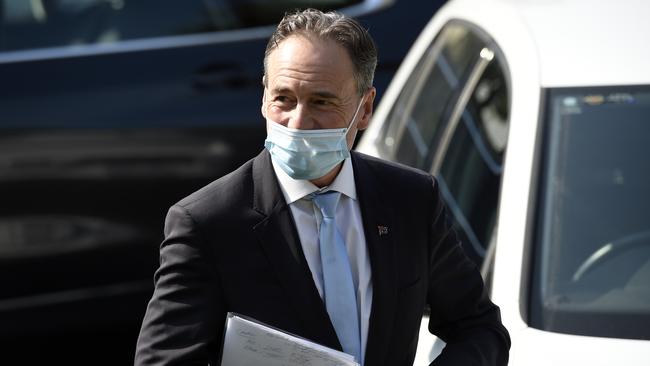
Adam Creighton8.05pm:Worst case is 2800 daily winter cases
COVID-19 cases in Australia could surge to more than 1300 new infections a day as winter approaches — more than double the peak reached last year — according to the “most likely to happen” estimate from an advanced coronavirus model used by the US government.
On a “worst case” scenario, where vaccination programs remain ineffective, forecasts by the Institute of Health Metrics and Evaluation at the University of Washington predict cases in Australia will increase from around zero to more than 2800 a day by the start of July.
“These IHME forecasts are some of the best you can get,” said Dr Benjamin Ryan, an Australian and public health expert at Baylor University, Texas.
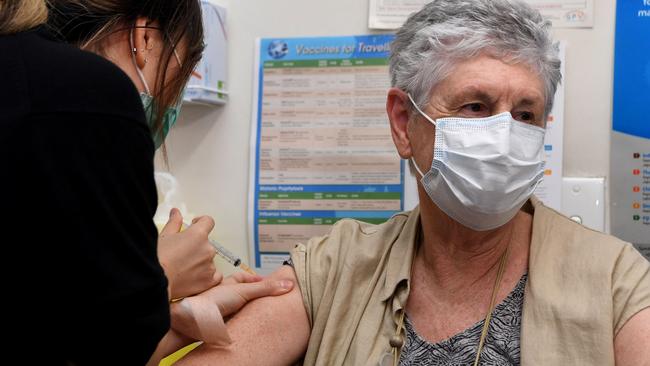
“I don’t know how Australia gets out of this situation without a surge in cases at some point; the evidence is increasingly that at some point you have to reach herd immunity,” he said.
The forecasts, updated on April 1, predict infections, deaths and hospital utilisation across different countries and US states based on the observed impact of the virus, its seasonality, vaccination levels and likely policy responses by governments.
“Given the high mobility, low use of masks, and seasonal pattern starting to work against Australia, we would expect a higher number of COVID cases there,” said Theo Vos, a professor of health metrics at the University of Washington.
AFP7.35pm:Europe to release findings on AstraZeneca
The European Medicines Agency will reveal its findings over possible links between AstraZeneca’s coronavirus vaccine and blood clots at midnight (AEST), the Amsterdam-based regulator said.
“EMA is holding a virtual press briefing on the conclusion of the evaluation of a safety signal with Vaxzevria (formerly Covid-19 Vaccine AstraZeneca) relating to cases of thromboembolic events by EMA’s safety committee,” it said in a statement.
EMA chief Emer Cooke and senior officials from the agency would take part in the press conference, which comes after several European countries suspended use of the vaccine for younger people over the issue.
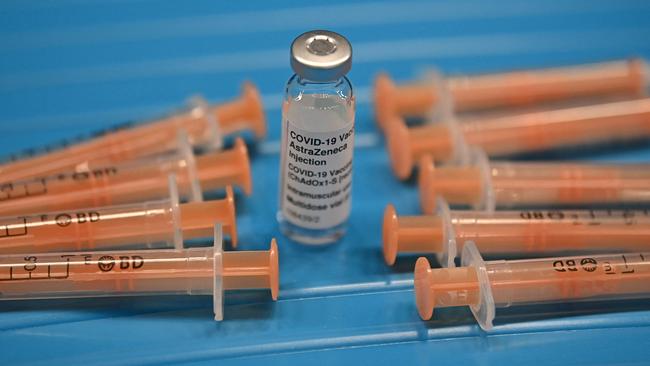
The agency said it was a “preliminary timing” and could change. A senior EMA official was quoted in Italian media on Tuesday as saying that there was a “clear” connection between the AstraZeneca jab and clots, and that the agency would announce it soon.
“In my opinion, we can say it now, it is clear there is a link with the vaccine,” EMA head of vaccine strategy Marco Cavaleri told Italy’s Il Messaggero newspaper in an interview. “But we still do not know what causes this reaction.”
However, the EMA said later on Tuesday it had “not yet reached a conclusion and the review is currently ongoing”.
The watchdog has so far said that the vaccine is safe and effective, and that the benefits of using it to prevent illness and death caused by COVID-19 outweigh the possible risks.
Last week after a meeting of experts the EMA said it had not found any “specific risk factors” such as age, gender or a previous medical history of clotting disorders.
READ MORE:‘Fourth time’s a charm’: Victoria spruiks latest hotel plan
Robyn Ironside 6.45pm:Qantas adds more flights across the Tasman
Qantas has added more flights across the Tasman to its schedule in response to the demand for seats and Virgin Australia’s surprise decision to postpone the resumption of services to New Zealand.
Within hours of the announcement by New Zealand Prime Minister Jacinda Ardern that a two-way travel bubble would open from April 19, Qantas and Jetstar had scheduled more than 120 flights a week.
On Wednesday, another 20 return flights a week were added between May and October, to cover the period in which Virgin Australia has decided not to operate due to the complexity of border requirements and the airline’s focus on domestic routes.
Mackenzie Scott 6.14pm:Elderly Queensland woman dies after receiving vaccine
A nursing home resident in southeast Queensland has died after receiving her COVID-19 vaccine on Wednesday.
The 82-year-old woman, who was living at the Yurana aged care facility in Springwood, southwest of Brisbane, received her jab at 10am. Police were later called to the centre at 1.30pm.
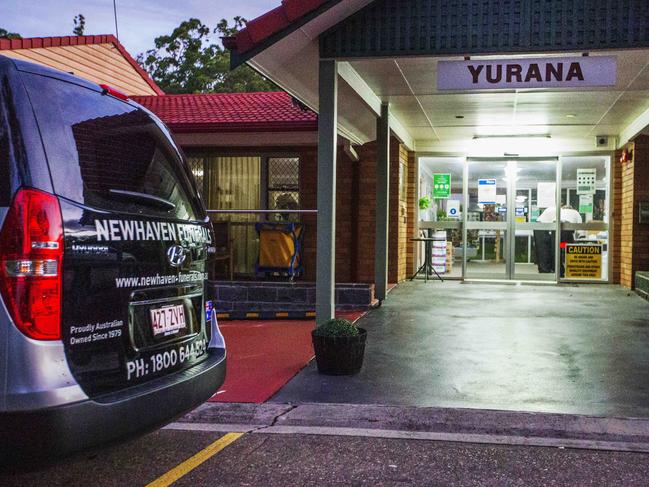
There are no links at this stage between the jab and the woman’s death, as she suffered other health problems including lung disease.
A Queensland Police spokesman confirmed an 82-year-old had died and the death was not being treated as suspicious.
He said a report was being prepared for the Coroner.
AFP 6.00pm: UK starts Moderna jabs as AstraZeneca probed
Britain on Wednesday began rolling out its third coronavirus vaccine, from US company Moderna, as questions mounted over jabs from the country’s main supplier, AstraZeneca.
The Moderna vaccine, which is already being delivered in Europe and the United States, joined ones from AstraZeneca-Oxford University and Pfizer-BioNTech in Britain’s armoury against Covid-19.
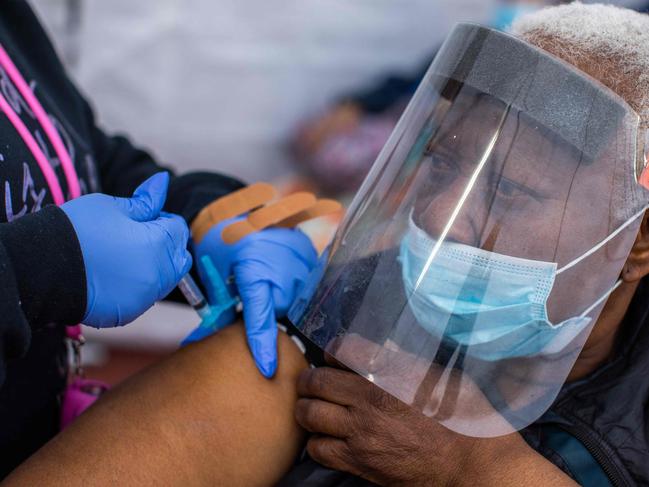
The first jabs of the two-stage Moderna inoculation were injected at a hospital in Wales, in a timely diversification of Britain’s rollout that was hailed by Prime Minister Boris Johnson.
“We have ordered 17 million doses that will be going into arms across the UK in the coming weeks. Please get your jab as soon as you are contacted,” he tweeted.
Supply problems for AstraZeneca had threatened to complicate Britain’s inoculation drive this month, and concerns are building over a potential link between the jab and rare blood clots among a small number of recipients.
Oxford University said late Tuesday that it had paused a British trial of the AstraZeneca vaccine on children.
The university said the trial had posed “no safety concerns”, but that it was awaiting more data from Britain’s Medicines and Healthcare products Regulatory Agency (MHRA) before restarting the study.
READ MORE:Industry with 25,000 jobs at stake
Rachel Baxendale5.05pm:Vic learns from past failures as quarantine resumes
The Andrews government has sought to assure Victorians it has learnt the lessons of past failures ahead of the resumption of international arrivals on Thursday.
From 4:30am on Thursday four flights were expected to arrive, delivering 106 passengers to two hotels, including Melbourne Airport’s Holiday Inn, which was at the centre of the cluster of 22 coronavirus cases which prompted Premier Daniel Andrews to lock Victoria down for five days in January’s and suspend international arrivals indefinitely.
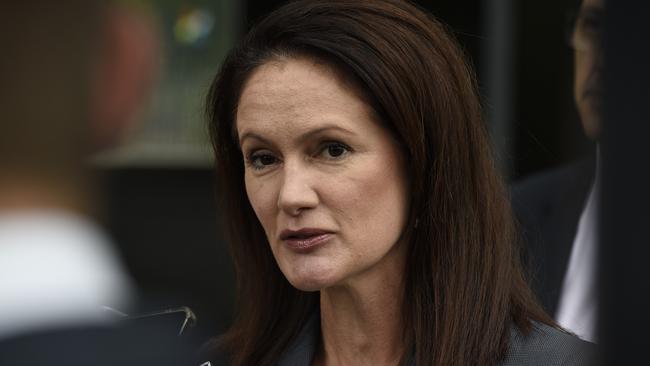
COVID-19 Quarantine Victoria Commissioner Emma Cassar said she was confident all infection control issues at the hotels participating in the scheme had been overcome, citing a ventilation overhaul, vaccinations of all staff, and changed protocol for guests with aerosol-generating devices such as the nebuliser which was blamed for the Holiday Inn cluster.
Rebecca Myers4.54pm:Tokyo’s Olympic venues fail Covid test
The Tokyo Olympics have been hit by a handful of postponements and cancellations of test events and qualifiers with less than four months to go until the Games are due to begin.
The International Swimming Federation (FINA) has cancelled Olympic qualifying events scheduled to take place in Tokyo over the next few weeks, citing dissatisfaction with the organisers’ COVID-19 strategy.
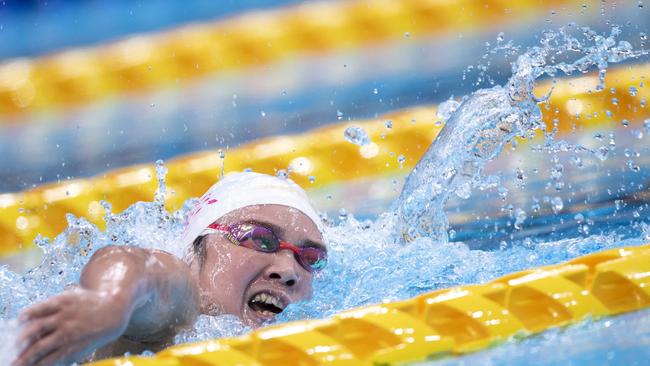
This includes the Diving World Cup, which was due to be held from April 18 as an official test event for the Games, featuring top divers including Tom Daley and the defending Olympic 3m synchro champion Jack Laugher. It is understood that FINA is considering alternative locations to host the event at a later date.
Darren Cartwright4.42pm:Industry with 25,000 jobs at stake
The fed-up and highly frustrated cruise industry has demanded a date be set to resume sailing now that a trans-Tasman bubble has been established, warning 25,000 jobs are at risk.
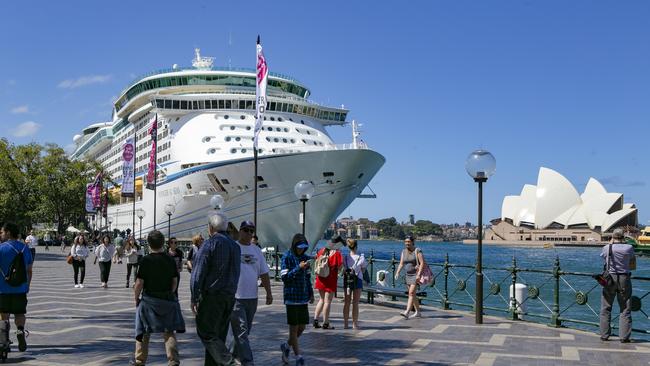
The Australian cruise industry has been shut down for more than 12 months following the outbreak of coronavirus and the Ruby Princess debacle, which has been linked to more than 660 cases and 28 deaths.
However, since Tuesday’s announcement that a trans-Tasman bubble would begin on April 19, allowing quarantine-free travel between New Zealand and Australia, the cruise industry wants to be included.
Russell Gould4.37pm:Australian cricketer tests positive to COVID-19
Australian all-rounder Daniel Sams has been forced into isolation in a medical facility in India after testing positive for COVID-19.
Sams flew to India last week to take up his Indian Premier League contract with Royal Challengers Bangalore who confirmed he tested positive on Wednesday.
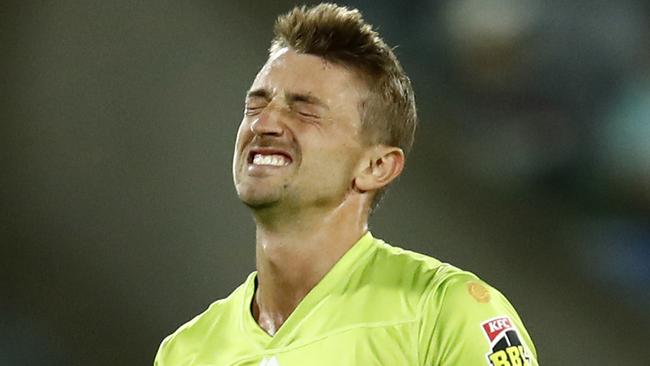
The team revealed Sams tested negative on arrival to the team hotel but had somehow contracted the disease in the four days since that test.
Rachel Baxendale4.23pm:Latest vaccination figures from Victoria
Victoria’s health department administered 6012 vaccination doses on Tuesday, bringing the total number of state-issued immunisations in Victoria to 123,759.
The department confirmed the latest figures on Wednesday afternoon, saying Victoria was continuing to support the commonwealth with its vaccination program with further expansion of the program, pending vaccine supply.
READ MORE:Mass COVID-19 jab facilities ‘must be used now’
Darren Cartwright3.48pm:What people don’t get about the vaccine
Millions of Australians are still likely to contract COVID-19 even after they have been inoculated, while a vaccine for children is possibly another year away, experts have warned.
There is insufficient data showing that either the Pfizer or the AstraZeneca vaccine being distributed in Australia can partially or fully stop the transmission of the disease, says Australian Medical Association vice-president Chris Moy.
All that remained was “hoping” that vaccines being used around the world could prevent transmission of the virus, he said.
“The jury is still out on all vaccines on whether you can catch it and still pass it on,” Dr Moy told NCA NewsWire.
“We are only hoping they do reduce transmission and they probably do, but we are hoping.
“The vaccine has not been around long enough to get that data. The only thing we are absolutely sure of is that all of the vaccines are stopping the severe disease and stopping people dying.”
Professor Peter Collignon, an infectious diseases professor at the Australian National University, said no one should think they are not going to contract the virus after being inoculated.
Nicholas Jensen2.35pm:Shot in the arm coming for jab rollout
Health Minister Greg Hunt says Australia will have access to an additional 1.6 million vaccine doses within three weeks, adding the nation is in “an extraordinarily fortunate position by comparison” to the rest of the world.
The delivery of the new batches from CSL will mean the nation has access to 2.9 million doses.
Mr Hunt said CSL will distribute its dose batches in a “continuous release program”.
“The TGA has received and processed those doses on the same day they received the advice,” he said.
“We’ve received the 1.3 million that have been cleared and we’re expecting later this week over 470,000, early next week 480,000, and then late next week or early the following week 670,000.”
Mr Hunt said that while Australia has recorded another day of zero local transmission “at the same time, almost extraordinarily, we have seen 579,000 cases around the world in the last 24 hours and 11,500 lives lost.
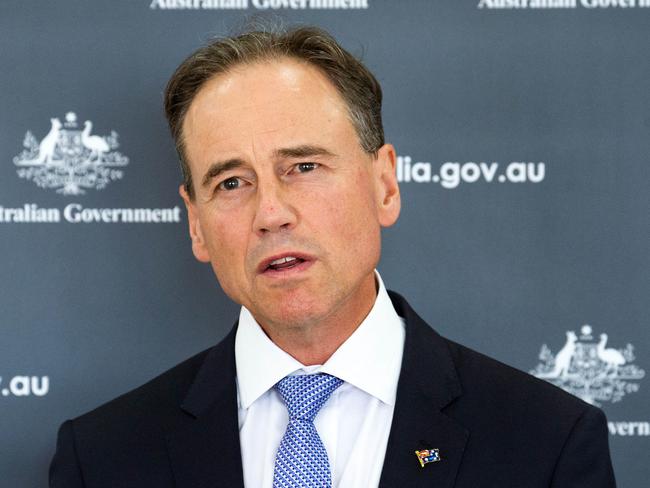
“Another way to look at it is, across the world, we have now seen over 49.5 million cases this year already around the world and over a million lives lost,” Mr Hunt said in Melbourne today.
“The commonwealth, through the GPs and the aged care, have now done 435,000 vaccinations, with 41,500 vaccinations in the last 24 hours,” Mr Hunt said.
Asked whether he expected to reach one million jabs by the end of today, Mr Hunt said today’s vaccination figures were higher than he’d anticipated because of the Easter break.
“That’s a figure that we’ll reach soon,’’ he said. “It will depend on post-Easter just the rate of which people are returning in practises and some of the larger vaccination clinics are scaling up. But the answer is very soon.
“We’ll reach that mark and then we’ll just continue to roll the vaccines out and as we move over the course of the coming weeks to more than 4000 practices, what we’ll see is that continued acceleration and all these milestones will be progressively reached.
Mr Hunt was also asked if aged care workers were being denied their second Pfizer jabs because of flawed records.
“There was one report that we had of one facility where there was some additional dosage required,” he said. “We have taken steps to make sure that will be made available to the workers.”
READ MORE: Covid death identified as ex-PNG governor
Nicholas Jensen1.46pm:WA records zero local Covid cases
Western Australia has no local cases of COVID-19 overnight, with one new case acquired from overseas.
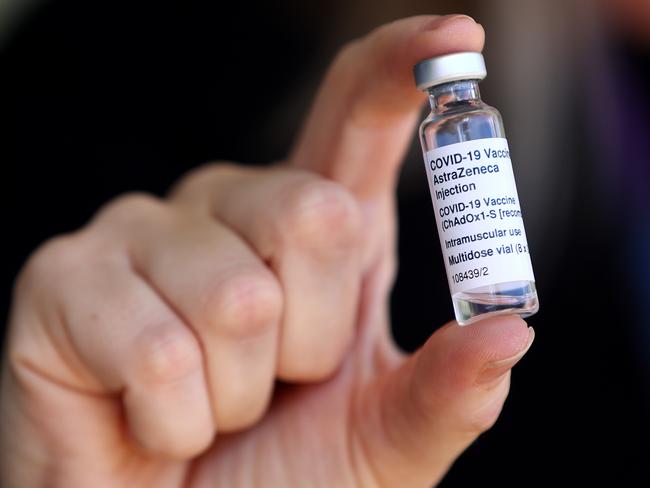
The new case is a male in his 20s, who is now in hotel quarantine.
WA Health is currently monitoring 18 active cases of COVID-19 and 924 people have recovered from the virus.
459 people were assessed for testing and then swabbed at WA Health COVID clinics.
WA Health has administered 59,765 COVID-19 vaccinations, including 9554 people who have received both doses.
Yesterday, health officials vaccinated 2318 people.
READ MORE: Gupta to fight OneStell wind-up
Tim Dodd1.28pm: Were the unis crying wolf over international students?
We now have information about the 2020 financial outcomes for 12 of Australia’s universities — nearly one-third — and the pattern is becoming clear. Many of them have passed through the shadow of COVID and come out in the black, either in surplus or with only a minor deficit.
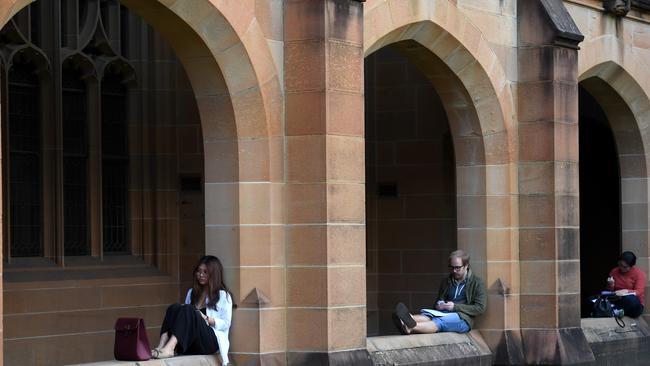
The latest data comes from Queensland where the 2020 annual reports of the seven public universities are published, with five reporting surpluses and one with a tiny $5m deficit.
Many will read this with cynicism, concluding that universities were crying wolf last year when they saw their international student market evaporating and pleaded for government support.
So what’s the real story? Have universities come through their travails in reasonable shape? Or is the pandemic an inflection point which marks the end of the years of plenty and the beginning of the years of penury?
READTim Dodd’s full commentary here
Nicholas Jensen12.40pm:NSW halves quarantine costs for agricultural workers
The NSW Government has announced it will subsidise half the quarantine costs of overseas agricultural workers arriving in a bid to combat the state’s labour shortages.
Treasurer Dominic Perrottet and Minister for Agriculture Adam Marshall announced the subsidy at the Sydney Royal Easter Show this afternoon, saying the agricultural sector faced critical problems.
“We know that our primary producers rely on seasonal and foreign workers, but we have heard loud and clear that the cost of mandatory quarantine is a significant barrier for farming businesses wanting to employ overseas workers,” Mr Marshall said.
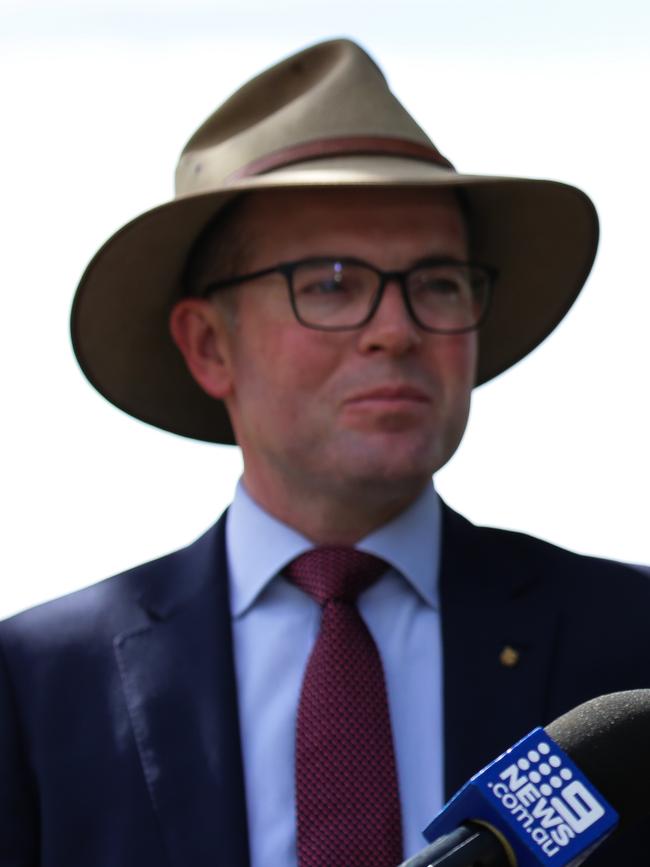
“As a result of today’s announcement, we expect to see an increase in applications through the Pacific Labour Scheme and or Seasonal Worker Program as the proposition for farmers becomes a lot more viable.”
Mr Perrottet said overseas agricultural workers entering the country under the Pacific Labour Scheme or Seasonal Worker Program will be eligible for a 50 per cent subsidy of the cost of mandatory quarantine to reduce the cost to industry from $3000 per person to $1500 per person for 2020-21.
READ MORE:Covid death identified as ex-PNG governor
Sarah Elks12.30pm:AEC launches investigation into disgraced Laming
Controversial Coalition MP Andrew Laming will be investigated by federal electoral authorities for allegedly operating about 30 Facebook pages without proper authorisation.
The Guardian reported Dr Laming operated the pages – which promote the LNP and tear down opponents – without disclosing his involvement.
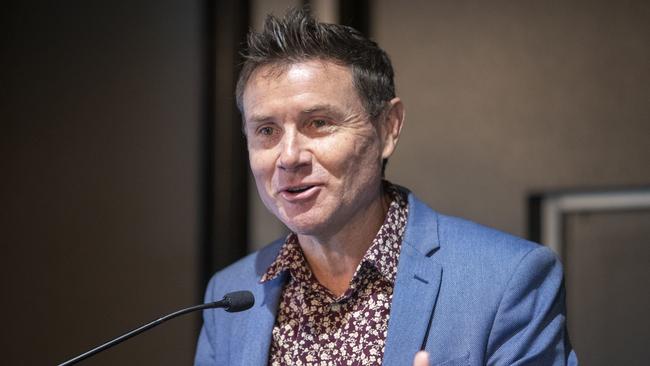
An Australian Electoral Commission spokesman confirmed the watchdog would “be investigating the requirement for electoral authorisation”.
He said the authorisation laws require voters to know who is communicating.
READ the full story here.
Nicholas Jensen 11.41am:SA lifts border restrictions to Queensland
The South Australian government has lifted its final border restrictions on Queensland and Byron Bay after the regions COVID – 19 outbreak last week.
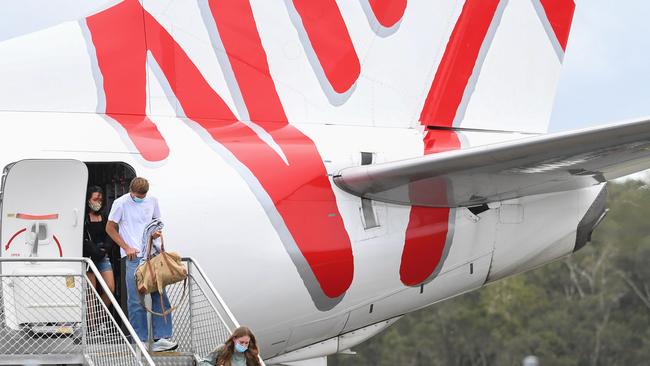
South Australian Deputy Police Commissioner Linda Williams said the state’s transition committee had decided to lift all restrictions.
As of Friday morning “Byron Bay restrictions will be lifted and next Monday April 12 restrictions will be lifted for Greater Brisbane and any other areas that were impacted.”
Visitors from those areas were previously required to get tested on days one, five and 13 after entering into South Australia.
South Australia has recorded no new local cases of COVID-19 in the last 24 hours, with one case detected in hotel quarantine.
Health officials confirmed there were 5037 tests recorded to 8pm yesterday.
The state is currently monitoring nine active cases, all of which were detected in hotel quarantine.
Health officials administered 1382 vaccinations across the state yesterday, with a total of 30,753 administered since the beginning of the rollout.
READ MORE:Jobs to get priority over parental leave
Nicholas Jensen11.16am:Homebush hub to complement GP clinics
NSW Premier Gladys Berejiklian has announced plans to open a mass vaccination hub at Homebush, saying this would “allow NSW to support the commonwealth in distributing the vaccine”.
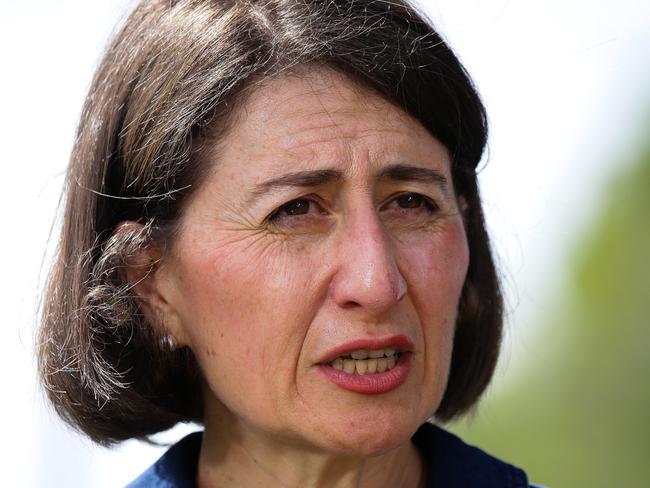
The mass vaccination hub will be supported by 100 vaccination sites across the state and is expected to inoculate several thousand people against COVID-19 every week in a bid to supercharge the vaccine rollout.
“NSW is already in the process of establishing 100 sites across the state to provide access to the vaccine … making sure everybody in rural and regional NSW as well as other locations outside of Sydney can get access to the vaccine to complement our GP network,’’ Ms Berejiklian said.
However, despite the announcement came with a warning. “Our ability to do 60,000 vaccinations a week depends on us getting the supply of the vaccine from the commonwealth,’’ Ms Berejiklian said.
“At the end of the day the commonwealth is responsible for getting the vaccine to the states … They’re responsible for making sure we have those doses.’’.
NSW Health is currently responsible for administering approximately 300,000 doses of the vaccines. Once this is completed, Ms Berejiklian said, the state should be able to do “60,000 vaccinations a week”.
Ms Berejiklian confirmed half would be completed at the hub in Homebush and half across the other 100 vaccination sites.
“That number could go up depending on demand but we think we’re capable of doing around 60,000 doses a week as a state post the 300,000,” she said.
The government expects the mass vaccination hub to be ready “in the next couple of months”, according to Health Minister Brad Hazzard.
The hub will be for inoculation of “the general population”.
Mr Hazzard said the vaccination hub in Homebush would provide additional support and show that “the NSW government is saying we are here to help you achieve the targets that you thought the commonwealth could do but for various reasons haven’t yet been achieved. We are there to support you.”
Chief Health Officer Kerry Chant confirmed that NSW had recorded no locally acquired cases of COVID-19 to 8pm, with six new cases acquired in overseas quarantine.
NSW Health recorded 4864 tests in the last 24 hours and Dr Chant urged people to help increase testing numbers.
“I would also like to thank the individuals in the Northern Rivers and the North Coast who have adhered to our requirements around isolation over this Easter weekend,” she said.
READ MORE: H&M upsets Vietnam with China backflip
Nicholas Jensen10.22am:Queensland records zero local virus cases
Queensland has recorded no local cases of COVID-19 in the last 24 hours, with six cases recorded in hotel quarantine.
Wednesday 7 April – coronavirus cases in Queensland:
— Annastacia Palaszczuk (@AnnastaciaMP) April 6, 2021
• 0 new locally acquired
• 6 overseas acquired
• 73 active cases
• 1,497 total cases
• 2,326,788 tests conducted
Sadly, six Queenslanders with COVID-19 have died. 1,366 patients have recovered.#covid19pic.twitter.com/zDkD0LNXVV
There were 8352 test results received across the state in the past 24 hours.
Queensland health authorities are currently monitoring 73 active cases.
FOLLOWlive ASX updates at Trading Day
Olivia Caisley10.15am: 1m doses from EU to be diverted to PNG
Scott Morrison says Australia will seek its full AstraZeneca order of 3.8m doses from Europe with one million doses to be immediately diverted to Papua New Guinea.
The Prime Minister on Wednesday said he is “encouraging” the European Union to grant export licenses for those doses as it will assist with both the humanitarian crisis unfolding in PNG as well as Australia’s own vaccine rollout.
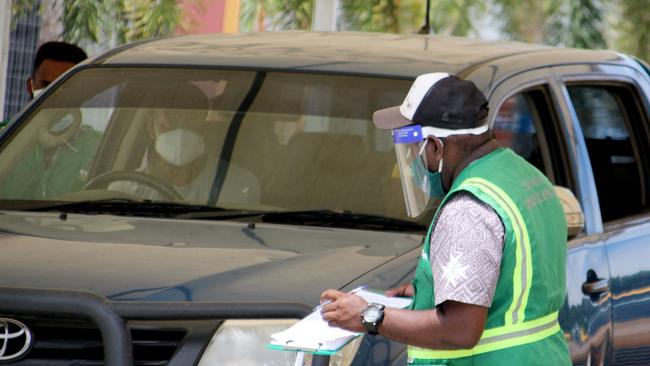
“If it is indeed the position of the European Union that they are happy for these export licences to be granted and their 3.8 million doses to come to Australia, then we would encourage them to do that,” he said.
“(It will) ensure that we can do two things – firstly to provide support to our Pacific family in Papua New Guinea that are undergoing a humanitarian crisis and to support them those one million doses and to ensure that those contracted doses for Australia can be part of the vaccination rollout here in this country.”
Department of Health Secretary Brendan Murphy says the commonwealth is not holding back supply.
READ MORE: Americans embrace vaccination rollout
OLIVIA CAISLEY 10.03am:Simple fact: ‘3.1m vaccines didn’t turn up’
Scott Morrison has denied criticising the European Union over vaccine supply, declaring it’s a “simple fact” that 3.1 million of the 3.8 million doses Australia had ordered did not arrive when planned.
The Prime Minister on Wednesday said delays to the arrival of those vaccines in Australia had impacted the early stages of the nation’s COVID-19 vaccine rollout.
“I want to stress that at no time yesterday did I make any comment about the actions of the European Union, nor did I indicate any of the background reasons for the lack of supply that we have received from those contracted doses and so, any suggestion that I, in any way, made any criticism of the European Union yesterday would be completely incorrect,” he said.
“I simply stated a fact — that 3.1 million of the contracted vaccines that we had been relying upon in early January when we’d set out a series of targets did not turn up in Australia. That is just a simple fact. Now, that fact has been the key reason for the early phases of the supply in the rollout in the vaccine.”
The EU has previously denied blocking shipment of 3.1 million doses of the AstraZeneca vaccine to Australia, saying it has rejected only one out of 491 vaccine export requests.
READ MORE: Premier calls for national women’s summit
Staff writers9.38am: Morrison, Murphy set to address media
Scott Morrison to hold press conference alongside Professor Brendan Murphy at 9.40am. Watch it live on the video stream above.
Nicholas Jensen 9.36am: Victoria records zero Covid cases
Victoria has recorded no new cases of COVID-19 in the last 24 hours.
There were 11,746 test results received across the state in the past 24 hours.
Yesterday there were no new cases reported. 11,746 test results were received. Got symptoms? Get tested - #EveryTestHelps.
— VicGovDH (@VicGovDH) April 6, 2021
More later: https://t.co/lIUrl0ZEco#COVID19Vic#COVID19VicDatapic.twitter.com/KpLs7p9rPh
Health authorities are monitoring one active case, an international flight crew member who tested positive on March 29.
Charlie Peel9.30am: No more border openings until rollout complete: Premier
Annastacia Palaszczuk says the COVID-19 vaccine rollout needs to be completed before Australia considers opening borders to countries other than New Zealand.
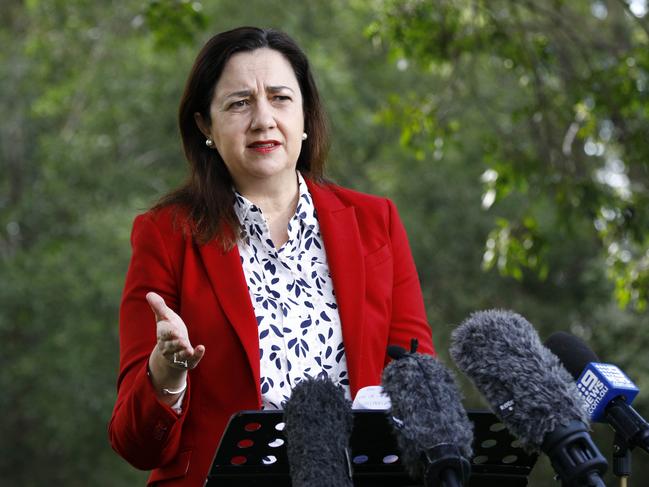
The Queensland premier said the federal government was responsible for 70 per cent of the vaccine rollout and needed to be more transparent about procurement issues.
“I think the issues are the same across the other states and territories as well,” she said.
“The issues are around the supply of the vaccine.
“I honestly believe there needs to be an acknowledgment, like the Prime Minister did yesterday, about the issues with supply.”
Ms Palaszczuk reiterated her calls for the federal government to release figures about the number of vaccine doses it had issued each day.
Praising the open border with New Zealand as a good first step, Ms Palaszczuk said she was not supportive of opening up to other countries yet.
“There’s all these other strains around the world at the moment,” she said.
“Let’s get the vaccine done and then I think is the right time to look at that.”
READ MORE: Budget ‘tweaks’ to attract foreign investors
Charlie Peel 9.20am:Queensland blames federal government over Pfizer supply
Queensland is expected to deliver its 100,000th vaccine by Thursday morning but the slower than expected rollout has been blamed on a lack of assurance from the federal government about continuity of Pfizer vaccine supply.
There are 73 active cases in Queensland hospitals, 26 of which are from Papua New Guinea.
Health Minister Yvette D’Ath said there had been six new cases of COVID-19 recorded in the 24 hours to Wednesday morning, all of which were detected in hotel quarantine.
She said the government had not given a guarantee that there would be a delivery of the Pfizer vaccine within the next two weeks, meaning Queensland’s vaccine rollout would be slowed.
Chief Health Officer Jeannette Young said a 77-year-old Papua New Guinean man who died in Redcliffe Hospital near Brisbane on Monday had not been infectious with COVID-19 at the time of his death.
Premier Annastacia Palaszczuk said Queensland’s Health professionals “did everything they could” to save the man, who had the PNG strain of the virus and was admitted to hospital on March 28.
“It’s just a tragedy that he passed away, he was a very sick man,” she said.
READ MORE:Margin Call — Chemist’s dividends the right medicine
Nicholas Jensen 9.17am:A third of Covid survivors have brain, psych disorders
A new study published in the Lancet Psychiatry Journal says “one in three COVID-19 survivors were diagnosed with a brain or psychiatric disorder within six months”, suggesting the pandemic could lead to a wave of neurological complications.
The findings examined health records of 236,379 COVID-19 patients and found 34 per cent had been diagnosed with neurological or psychiatric illnesses within six months.
However, these were the most common diagnoses among the 14 disorders the researchers examined.
The researchers who conducted the analysis said it was not yet clear how the virus was linked to psychiatric conditions such as anxiety and depression.
Post-COVID-19 cases of stroke, dementia and other neurological disorders were found to be rarer, but were still significant, especially in those who had a severe infection.
“Our results indicate that brain diseases and psychiatric disorders are more common after COVID-19 than after flu or other respiratory infections,” psychiatrist Max Taquet, who co-led the project, said.
“The study was not able to determine the biological or psychological mechanisms involved,” Dr Taquet said.
READ MORE: Vaccine passports only restrict freedom
Nicholas Jensen8.59am: Australia ‘caught in vaccines supply crossfire’
Australia has been “caught in the crossfire” between the EU and vaccine suppliers, as the country attempts to ramp-up its inoculation program, an infectious diseases expert says.
“It’s unfortunate, but I think this is a consequence of trying to supply billions of people around the world with this vaccine and, particularly the novelty of the extent of that supply,’’ Westmead Millennium Institute director Tony Cunningham says
Professor Cunningham said Australia had done a “wonderful job’’ in producing vaccines locally.
“We’ve got our sovereign capacity to produce vaccines and they’ve done a wonderful job in switching over from influenza which is a vaccine produced by virus growth in the eggs to producing this vaccine in cells — all in a matter of months,’’ he said.
Professor Cunninghan indicated he was not concerned about the speed of the rollout, saying “our regulators are guardians of our safety, we don’t want to make mistakes”.
“We do have time in this country,” he said.
READ MORE:Millennials dump share houses for studios
Richard Ferguson 8.31am: EU refusing to approve vaccine exports ‘same as blocking’
Josh Frydenberg says the European Union is so far refusing to give approval to export more AstraZeneca vaccines to Australia, contradicting the EU’s claims it has not blocked any jabs.
The EU has denied blocking shipment of 3.1 million doses of the AstraZeneca vaccine to Australia, saying it has rejected only one out of 491 vaccine export requests.
The Treasurer said on Wednesday that the European Commission has failed to approve exports to both Australia and Papua New Guinea, and that this failure is akin to blocking exports.
“What the EU have said both publicly and privately is that they’ll not be exporting the vaccine until they’ve met their domestic needs,” Mr Frydenberg told ABC News.
“Now, that’s what they’ve said. So the fact that they’re not giving approval is effectively the same as blocking.
“The applications are before the EU. They’ve been there. They haven’t received the approval.”
On Tuesday, Scott Morrison said Australia’s vaccine rollout had been disrupted by supply chain issues overseas, suggesting the import of 3.1 million vaccine doses had been blocked.
According to the spokesperson, the only rejected request out of almost 500 received has been a shipment of 250,000 doses to Australia in March.
From the end of January to late March, the EU exported 1 million doses to Australia, the European Commission said.
READ MORE: PNG man dies from virus in Brisbane
Nicholas Jensen 8.25am: French Covid patients in ICU numbers spike
France’s hospital system is under increasing pressure as the number of people treated in Intensive Care Units from COVID-19 has reached its highest level in almost a year.
On Tuesday the French health ministry reported that the number of people in ICU with COVID-19 had increased to 5626 patients, marking the country’s biggest spike since last April, when France was in the midst of its first lockdown.
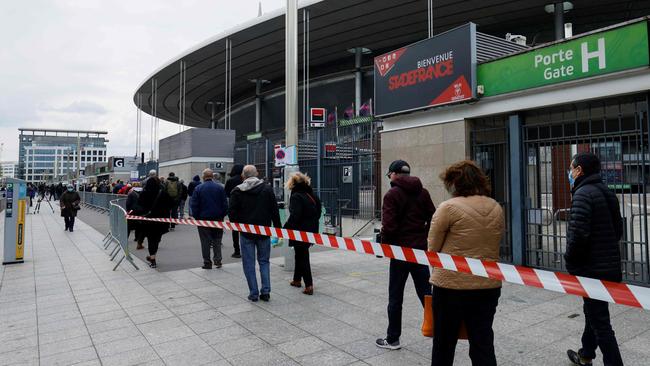
The total number of people hospitalised for the virus rose by 732 patients in the last 24 hours, the sharpest daily increase for more than four months to 30,639.
France is hoping a ramp up of its vaccination program to regain control of the latest outbreak.
Earlier on Tuesday, the country started administering shots of the COVID-19 vaccine inside the Stade de France, the national stadium that previously hosted the World Cup final.
READ MORE:Mass jab facilities ‘must be used now’
Nicholas Jensen 8.14am: US Army tests vaccine that may protect against variants
The US Army will start testing adult volunteers with COVID-19 vaccine that researchers say may protect them against multiple coronaviruses.
The testing program commenced yesterday with army doctors administering a protein-based shot in adults between the ages 18 to 55.
The research team will test whether the vaccine safely induces an immune response.
Preliminary results of the study will be available by late June, with the US Army likely to join with a drug company to further test and develop the vaccine.
The experimental vaccine is among hundreds in development, with US company BioCentury saying more than 220 human vaccine trials are currently underway across the world.
READ MORE: RBA triggers warning on home price boom
DAVID SWAN 8.07am:Design company valuation skyrockets to $19.5bn
Sydney design company Canva has cemented its status as one of the fastest-growing software companies in history, raising a $US71m ($92.7m) capital round giving it a new valuation of $19.5bn.
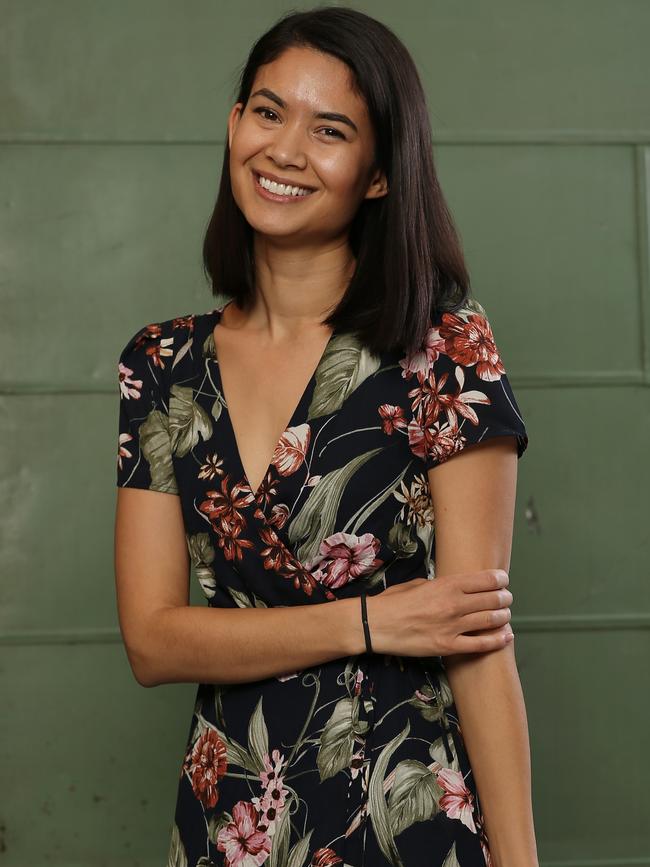
CEO Melanie Perkins said Canva had surged during the COVID-19 pandemic, with workplaces and teams across the globe using its tools to create presentations, logos and visual communication assets.
Last year Canva launched Presentations – its PowerPoint rival – and it said more than 250 million presentations have been created to date.
“We are pleased to support Canva in its mission to help teams around the world to democratise visual communication,” T. Rowe Price Global Technology Fund portfolio manager Alan Tu said.
“The company’s strong customer loyalty and consistent innovation has led to healthy growth, and we believe that they have the leadership team in place to continue on their path to becoming a much larger company in the future.”
FOLLOWlive tech news updates with The Download
Nicholas Jensen8.00am: We want travel to be predictable, NZ minister says
New Zealand’s COVID-19 Response Minister Chris Hipkins says he wants his government to be predictable when it comes to responding to any COVID-19 outbreaks that might affect the trans-Tasman travel bubble.
“If we thought we were concerned that there was transmission in Australia, we may pause for a period of time if there was a widespread outbreak,” Mr Hipkins told the ABC this morning.
“What we want to do is be as predictable as possible around what happens … so that people know what they’re getting in for.”
Mr Hipkins said he was confident that both governments could work through any problems if an outbreak arose.
“We’ve had good and clear communications on this and we are confident about the process we are going to put in place.”
READ MORE: What are the trans-Tasman travel rules?
Nicholas Jensen7.46am:Airlines weigh travel corridor between UK, US
British Airways and Virgin Atlantic Airways are making plans to implement a travel corridor between the UK and the US without requiring COVID-19 tests or quarantines at either end.
While the resumption of air travel is moving at different speeds across the world, British and US air carriers have suggested that the two countries’ robust vaccination rollouts and falling COVID-19 cases are grounds enough to consider the prospect of a travel corridor.
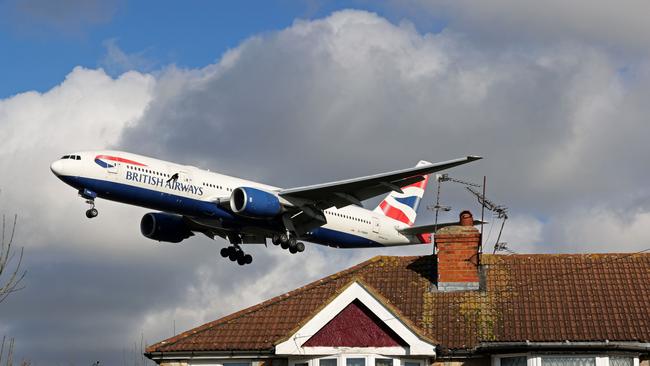
Travel between countries has remained largely grounded amid a range of country-specific travel restrictions, which has hampered European carriers.
But in the US, airlines are already preparing a busy summer amid a strong vaccination drive across the country in recent months, with suggestions that the UK could be a viable test case for a new travel arrangement.
The US aviation sector is preparing to disclose plans to allow residents to fly internationally as early as next month.
Aviation executives in the UK have indicated new guidance from the US Centers for Disease Control and Prevention should see fully vaccinated travellers fly again at low risk to themselves and others.
UK airlines have said that an accelerated recovery in the US would help bolster international demand.
READ MORE: Nation must accelerate vaccine rollout, corporate Australia warns
Nicholas Jensen7.30am: Australians ‘should be proud’ of economic performance
Treasurer Josh Frydenberg has praised the resilience of the Australian economy following the International Monetary Fund’s recent growth forecasts, saying “Australians should be proud of how we have outperformed on the health and economic fronts” throughout the pandemic.
Mr Frydenberg said the IMF news marked another promising milestone in our recovery from COVID-19.
Asked whether the pace of the vaccine rollout was hampering Australia’s economic recovery, Mr Frydenberg told Sky News this morning: “Australia’s situation in terms of the virus is quite different to other nations, we’ve been able to successfully suppress the virus and we’ve had outbreaks and that’s led to localised lockdowns and last year statewide lock downs.”
Mr Frydenberg said he was confident that vaccine distribution would continue to gain momentum, but emphasised that it was important “to distinguish the situation Australia finds itself in compared to the US and the UK, where the virus ran rampant and you can see that in the numbers”.
“Australia tragically lost 35 people for every 1 million persons in our population to COVID-19, whereas in Canada it’s more than 500 per million and in the US it’s more than 1500,” he said.
“Australia has outperformed on both the health and the economic fronts, and that’s something that more than 25 million Australians can be very proud of.”
READ MORE:IMF forecasts stronger growth
Nicholas Jensen 7.10am: What other travel bubbles are on the horizon?
The opening of the trans-Tasman travel bubble on April 19 has been praised by Prime Ministers Scott Morrison and Jacinda Ardern as a “win-win” for both countries and the “start of a new chapter in our response and recovery” from COVID-19.
While the prospect of a travel bubble has been discussed since the beginning of the pandemic last year, politicians and health officials suggest that the containment of COVID-19 in both countries means there is a low enough risk of transmission, permitting safe quarantine-free travel.
As travellers begin to plan their trips across the ditch, the new arrangement has revived suggestions of further bubbles to other destinations that have contained the spread of the virus.
Here are some potential bubbles for the future:
Singapore
One of Australia’s favourite tourist destinations, the idea of a travel corridor between Singapore and Australia has been discussed since the middle of last year.
The government has indicated it could happen by June, with the arrangement relying on the two nations agreeing on a digital vaccination passport.
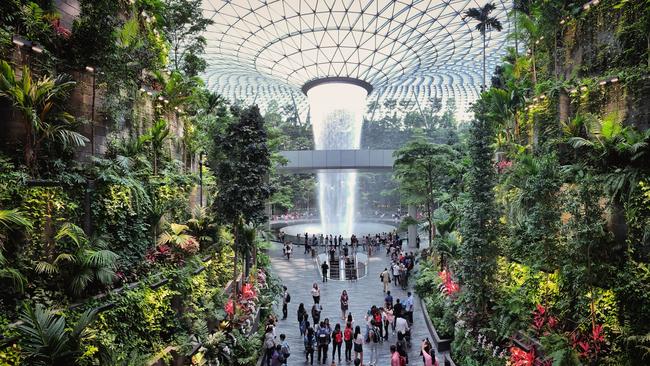
Last month Tourism Minister Dan Tehan said he would be happy to discuss the prospect of a travel corridor with Singapore.
“One of the keys is making sure that we can get that vaccine passport validated,” Mr Tehan said. “That will enable that two-way travel to occur, hopefully without quarantining down the track.”
Australians who received a COVID-19 vaccine would not require approval from the DFAT to travel to Singapore.
Similarly, Singaporeans who had been vaccinated would be permitted to enter Australia without undergoing two weeks in quarantine.
Japan
The Japanese government has already named Australia as “a priority nation” in the event that travel bubbles develop over the next six months. But there remains no clear time frame on when this could occur.
Last October Mr Morrison confirmed he was having discussions with Japan about a future travel arrangement, but conceded it would require extensive planning.
“Further afield, places like South Korea, Singapore and Japan, we have had good discussions with them but I think that is a bit further off,” Mr Morrison said.
Like many countries, Japan’s tourism industry has suffered a decline of more than 90 per cent since the beginning of the pandemic began, with the country no longer able to host thousands of visitors for the Olympic Games in 2020.
Speaking about the possibility of future travel corridors, Deputy Prime Minister Michael McCormack said he believed more bubbles will open up as the vaccine rollout intensified across the globe.
South Korea
South Korea is another country that was able to flatten the epidemic curve quickly, and now has plans to promote quarantine-free travel agreements to keep the country’s ailing aviation industry afloat.
South Korean Finance Minister Hong Nam-ki said: “The country will push ahead with the signing of ‘travel bubble’ agreements for people to travel without restriction on the basis of the coronavirus situation.”
Last month Mr Hong said the South Korean government was set to launch a pilot program for digital passports, showing COVID-19 testing certificates.
The Cook Islands
As New Zealand and the Cook Islands look set to implement a new travel bubble, Australia may also be able to adopt a similar arrangement.
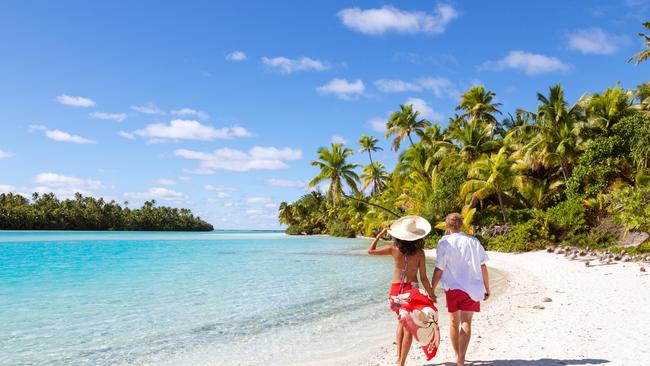
Last week Cook Islands Prime Minister Mark Brown and Ms Ardern announced the two nations were working towards a May travel bubble.
The two countries planned for a two-way quarantine-free travel arrangement by the end of March, but that did occur due to the reinstatement of lockdowns following Auckland’s cluster in February.
READ MORE:Editorial — Anzac travel bubble a major step to recovery
Nicholas Jensen6.30am:All US adults set to be eligible for jab
US President Joe Biden is set to announce all adults across the country will be eligible for COVID-19 shots within two weeks, while California makes plans to fully re-open its economy by June 15.
The news from the US _ a country that has recorded the most COVID-19 deaths in the world, but is now a leader in the vaccine rollout _ came after the IMF predicted a stronger economic rebound.
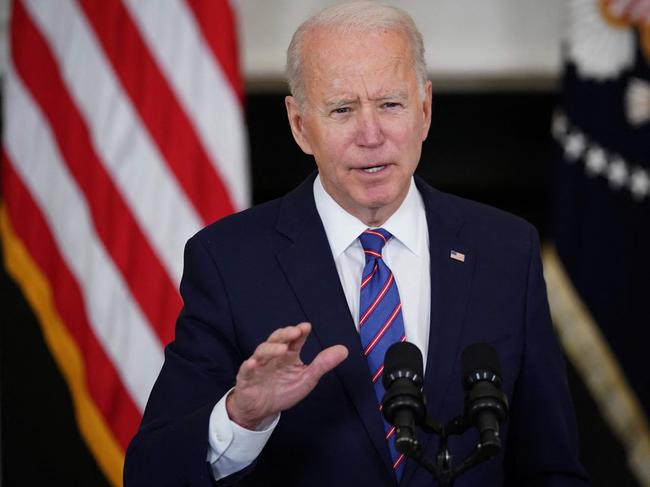
Mr Biden was expected to announce he is moving up the deadline for all adults to be eligible for vaccines to April 19, with the previous target scheduled for May 1.
If the target is reached, health officials have indicated, this would end restrictions by age, health issues or other categories for people wanting to get vaccinated.
President Biden: "This is America. We take care of one another. We have to keep it up." pic.twitter.com/HjFjIxxw0j
— The Hill (@thehill) April 6, 2021
After visiting a vaccination site outside of Washington, Mr Biden said while the worst of the pandemic is “not over yet, vaccines mean it soon could be”.
“Get one quickly … that’s how we’re going to beat this,” he said.
READ MORE: PM chairs women’s cabinet meeting
Nicholas Jensen6.15am:EU denies blocking 3.1 million AZ doses to Aus
The European Union has denied blocking shipment of 3.1 million doses of the AstraZeneca vaccine to Australia, as the bloc continues to review its vaccine exports to address shortfalls.
“We cannot confirm any new decision to block vaccine exports to Australia or to any other country,” a European Commission spokesman told a news conference yesterday.
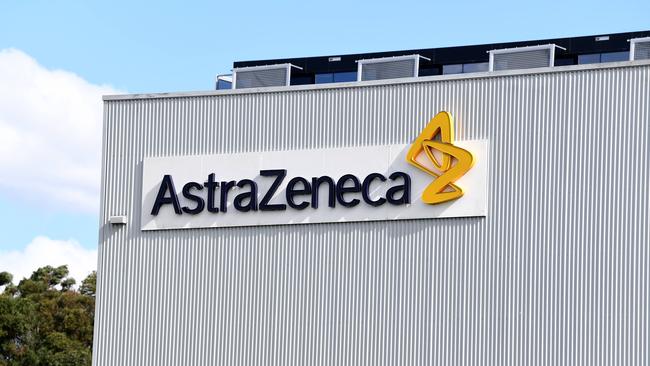
Earlier this week Prime Minister Scott Morrison said Australia’s vaccine rollout had been disrupted by supply chain issues overseas, suggesting the import of 3.1 million vaccine doses had been blocked.
“In early January, we had anticipated we would have those 3.1 million vaccines,” he said.
A spokesperson for the EU told Reuters that the bloc had rejected only one of 491 COVID-19 vaccine export requests since late January, but conceded that seven requests were currently being reviewed. It is not clear whether any Australian requests are currently under review.
According to the spokesperson, the only rejected request out of almost 500 received has been a shipment of 250,000 doses to Australia in March.
From the end of January to late March, the EU exported 1 million doses to Australia, the European Commission said.
The EU has indicated that AstraZeneca may not be permitted to export from the bloc until it fulfils its contractual obligations.
READ MORE: Emergency aid ready for East Timor
Robyn Ironside 5.50am:Travel bubble sparks holiday rush
Australians are rushing to fly into New Zealand for a holiday after the nations opened their borders for a two-way travel bubble, a result of their remarkable dual achievement in conquering COVID-19 outbreaks.
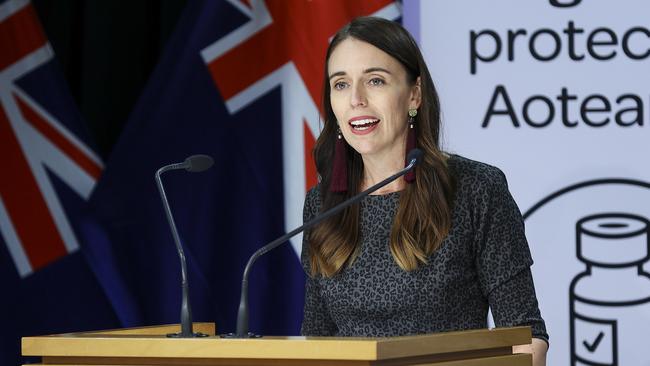
While New Zealanders have been allowed to travel to Australia without the need to quarantine on arrival, Australians will now be able to pour into New Zealand from April 19, less than a week before the annual celebration of Anzac Day.
More than 100,000 people a week will travel between the countries after New Zealand Prime Minister Jacinda Ardern approved the quarantine-free travel.
Scott Morrison described the return of flights as “tremendous” and the first step toward normalisation of international travel as vaccinations increase and COVID-19 cases remain low.
Ms Ardern said the trans-¬Tasman travel bubble was an opportunity to reunite family and friends and “a start of a new ¬chapter” in the recovery from the pandemic. “That makes New Zealand and Australia relatively unique … I know family, friends and significant parts of our economy will welcome it, as I know I certainly do,” she said.
READ the full story
Jacquelin Magnay 5.45am:AstraZeneca trial on children paused amid clotting probe
A scientific trial testing the Oxford AstraZeneca coronavirus vaccine on children has been suddenly paused while regulators in the UK and Europe conduct further investigationsinto whether the vaccine is linked to deadly brain blood clots.
This comes as the European regulator prepares to declare a “clear link’’ between the clots and the vaccine, according to the head of vaccines at the European Medicines Agency (EMA), Marco Cavaleri.
”In my opinion, we can say it now, it is clear there is a link with the vaccine. But we still do not know what causes this reaction,” Mr Cavaleri told Italy’s Il Messaggero newspaper.
“In the next few hours, we will say that there is a connection, but we still have to understand how this happens.
”It is now increasingly difficult to say that there is no cause-and-effect relationship between vaccination with AstraZeneca and very rare cases of unusual blood clots associated with low platelet counts”.
In the UK there have been 30 cases of blood clotting in the past four months, including seven deaths soon after receiving a vaccination under investigation. More than 20 million people have received doses of the AstraZeneca vaccine in the UK.
Scientists are puzzled as to why younger people appear to be presenting with thrombosis and other clotting issues at a rate higher than what would be considered normal.
“We are trying to get a precise picture of what is happening, to define in detail this syndrome due to the vaccine,” Mr Cavaleri said.
“Among the vaccinated, there are more cases of cerebral thrombosis among young people than we would expect.”
Meanwhile the pause in the vaccine trial on children has nothing to do with safety concerns about the trial, but is to allow time for the UK regulator Medicines and Healthcare Products Regulatory Agency (MHRA) to conduct further investigations on the vaccine, a lead scientist of the study Professor Andrew Pollard, said.
Children aged from five to 17 years of age have been involved in the trial, which started two months ago and it was supposed to be scaled up to involve around 200 children.
But the MHRA is poised to announce whether the AstraZeneca vaccine is safe for people under 30, after dozens of vaccinated people developed a deadly brain clot.
On the continent, Stella Kyriakides, European Commissioner for Health and Food Safety, said the European regulator would provide an updated assessment this week.
The World Health Organisation director of regulation and prequalification Rogerio Gaspar said on Wednesday: “What we can say is that the appraisal that we have for the moment — and this is under consideration by the experts — is that the benefits-risk assessment for the vaccine is still largely positive.
“We continue to see a number of events that are rare events linking thrombocytopenia to thromboembolic events and those rare events are now being categorised in terms of the diagnostics, in terms of the population, in terms of the distribution within the population.’’
READ MORE:‘No room for complacency’ on hotel quarantine
Natasha Robinson5.30am:Mass jab facilities ‘must be used now’
Health experts have called for the establishment of a wide network of mass immunisation centres in Australia to provide an immediate boost to the nation’s flagging COVID-19 vaccine program.
University of NSW epidemiologist Mary-Louise McLaws, who is an adviser to the World Health Organisation, said Australia would need to perform on average 132,000 vaccinations every day if the October time frame of the bulk of the population receiving at least one shot was to be met.
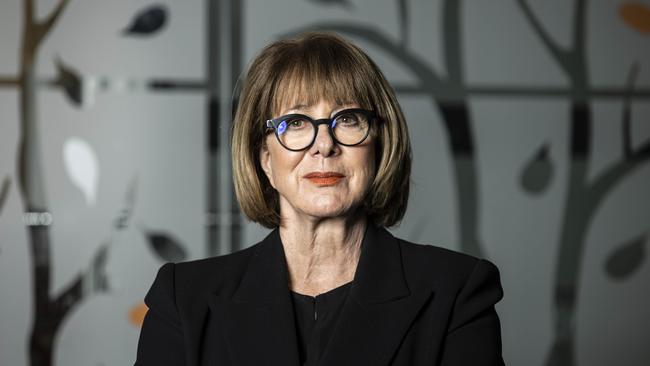
“We’re not doing very well so far,” Professor McLaws said. “At the current rate they’re not going to make that deadline at all. They will need to increase the daily vaccination rate sevenfold if everyone is to receive at least one dose by October.”
The federal government says it plans to set up mass vaccination centres as the vaccine rollout continues but Professor McLaws questioned whether the plans were of the scale required.
“Their definition of mass vaccination and mine are very different,” she said. “You need a lot of them. I’m thinking of what is done during Ebola, polio, all of the vaccination programs since time immemorial.
“If people can’t get to the stadiums, then open up the parks in each suburb, open up the schoolyards on weekends.”
READ the full story




To join the conversation, please log in. Don't have an account? Register
Join the conversation, you are commenting as Logout